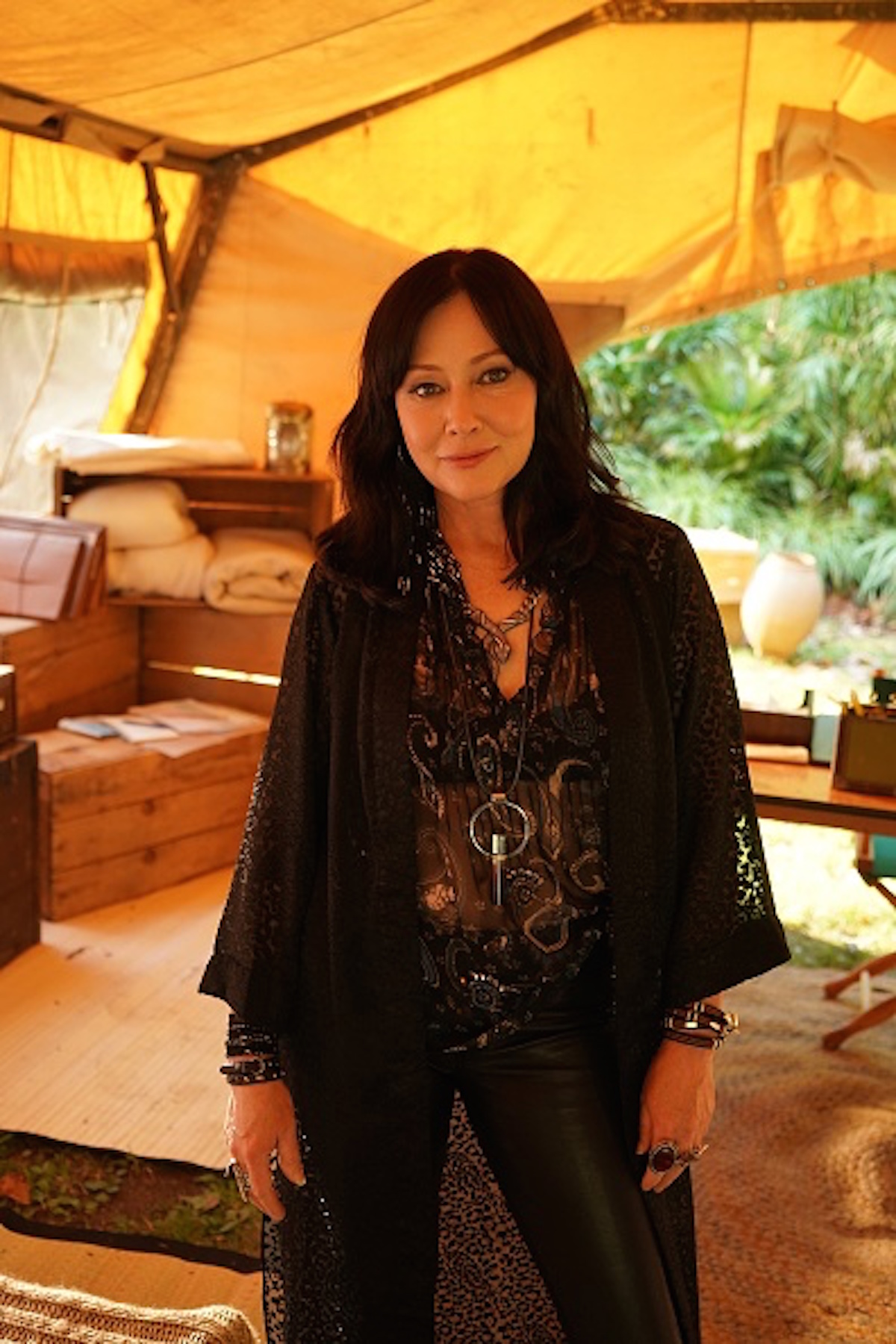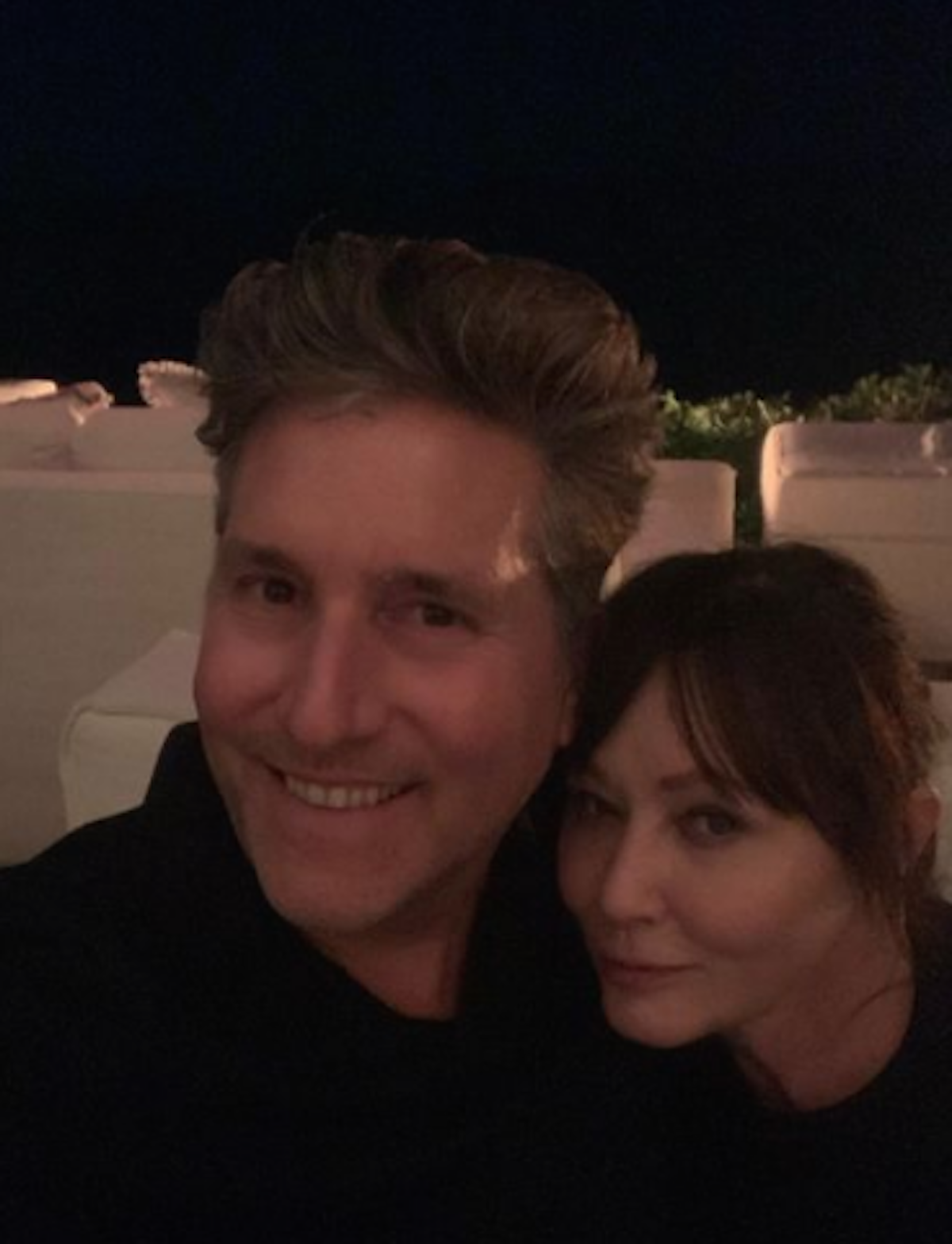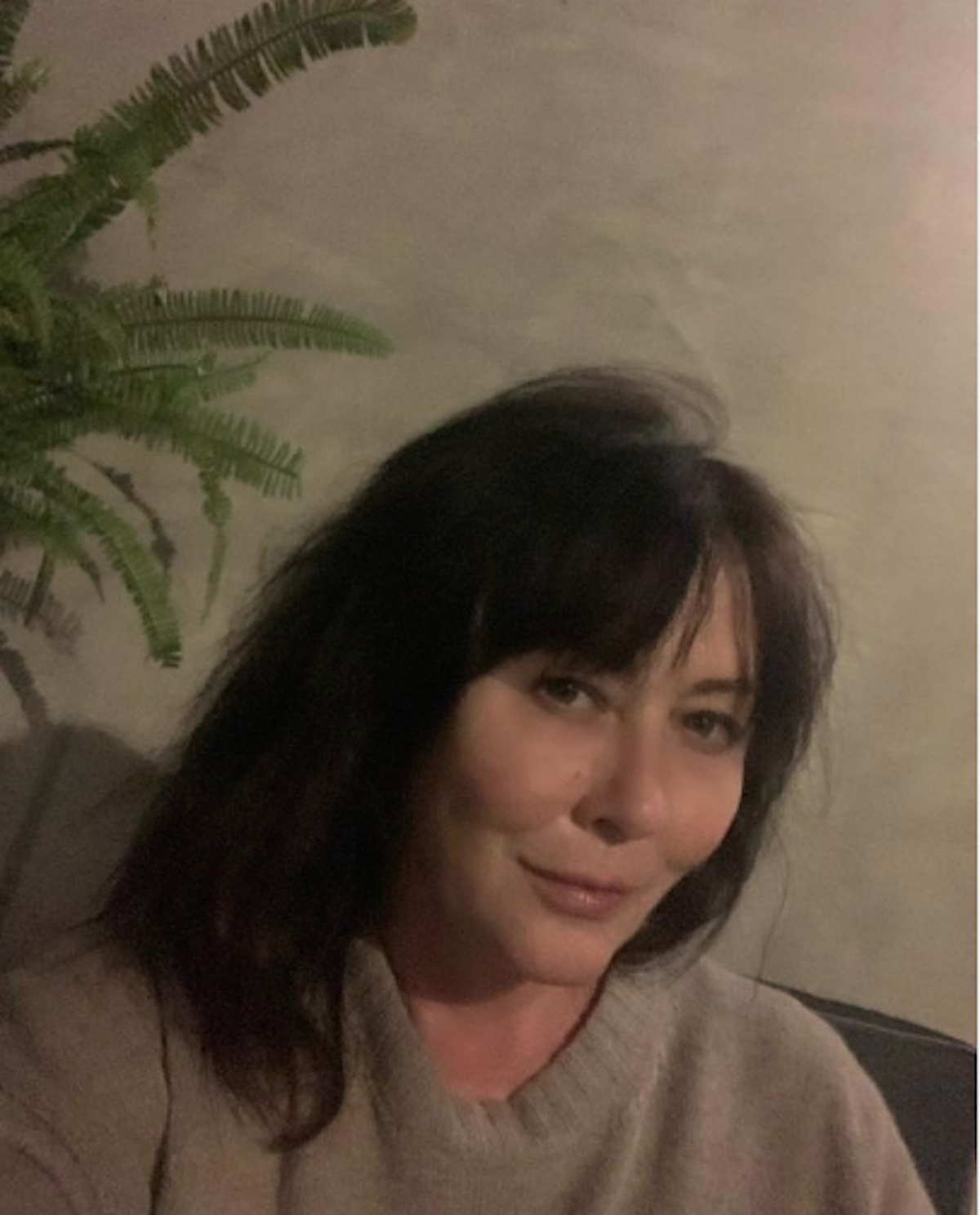Staying Motivated Through Cancer
- Actress Shannen Doherty is currently battling metastatic breast cancer. But, thankfully, she’s maintained a positive outlook throughout her fight against the disease.
- In her most Instagram story, we saw the 51-year-old share an uplifting video about people who “bounce back from everything.”
- Doherty was first diagnosed with breast cancer in 2015 after finding a lump in her breast which turned out to be cancerous. Her cancer later returned and spread to her lymph nodes.
- Metastatic breast cancer also called "stage four" breast cancer means that the cancer has spread, or metastasized, beyond the breasts to other parts of the body. There is technically no cure, but advancements in treatments can dramatically improve outcomes and that is something to be hopeful for.
- Even though studies have proved remaining positive can help successful treatment outcomes, it's a lot easier said than done. Cancer treatment can be a grueling process, affecting you both mentally and emotionally, even though your support system may push you to look on the bright side, it's understandable if you're struggling with it.
In the footage shared by Doherty, best known for her role as Brenda Walsh in Beverly Hills: 90210, a man’s calm voice is heard reading out a short quote, which was placed in overlay text on a magical background of a purple and pink sunset.
Read More
"A little blue steel is never a bad thing. Trust, love, enduring loyalty are the things I value most. @chriscortazzo always hits all three," she wrote in her caption. "Thank you Mr and Mrs B for a wonderful evening. @romadowney"
"Mr and Mrs B," or Downey and Burnett, took the time to share some kind words for Doherty in the comment section of her post. "Love you Shannen. You are family â¤ï¸," Burnett wrote. His wife also commented with a heartfelt, "We love you guys 💙💙💙."

The Power of Persistence & Positivity
We love how Doherty shares these powerful words with fans focused on persistence in the face of challenges. Colorectal surgeon Dr. Zuri Murrell says that having a positive and upbeat attitude like this may help with cancer outcomes.
Related: Inspiring People Touched By Cancer, Living Life in Spotlight
Dr. Murrell says in a previous interview, "My patients who thrive, even with stage 4 cancer, from the time that they, about a month after they're diagnosed, I kind of am pretty good at seeing who is going to be OK."
"Now doesn't that mean I'm good at saying that the cancer won't grow," he says. "But I'm pretty good at telling what kind of patient are going to still have this attitude and probably going to live the longest, even with bad, bad disease. And those are patients who, they have gratitude in life."
Shannen's Breast Cancer Battle
Shannen Doherty was first diagnosed with breast cancer in 2015 after finding a lump in her breast which turned out to be cancerous. She had hormone therapy to fight her cancer, but it was ineffective and the cancer had spread to her lymph nodes.

Doherty underwent a single mastectomy and also had chemotherapy and radiation. After going into remission, she announced in February 2020 that her cancer returned, and this time it had spread to other parts of her body.
Surgery, like the kind Shannen Doherty had (a single mastectomy), is a common treatment path for many people fighting breast cancer. In an earlier interview, an oncologist at the Dana-Farber Cancer Institute explains the path to surgery.
When To Consider a Mastectomy?
She says, "So when I talk to a woman who comes to me and she has breast cancer, I evaluate what the standard options for treatment for her are, which typically include cutting out the cancer which is either a lumpectomy if you can get it all with just a little scooping around of the area that's abnormal or a mastectomy for some women meaning taking the full breast because sometimes these lesions can be very extensive in the breast."
Understanding Metastatic Breast Cancer
When breast cancer spreads, it most commonly goes to the bones, liver and lungs. It may also spread to the brain or other organs.
Currently, there is no cure for metastatic breast cancer, but new treatments have been improving survival rates.
"What we find is that everyone comes to acceptance in their own time with supportand some people never really reach acceptance," Marshall Gold, a psychiatric mental health nurse practitioner at the Johns Hopkins Hospital in Baltimore, tells SurvivorNet.
He reminds us that battling cancer is a very personal experience and there's no right or wrong way to grieve.
"I think the ways we can support these women are just to honor really how horrible the diagnosis is and the uncertainty that lies ahead and to try to reframe what is most important to you," Gold says. "What do you continue to live for? What brings you joy? To try to see that little silver lining in a horrible situation."
In this case, the silver lining is Doherty finds more meaningful purpose in her own life and is fighting for something other than herself and her own battle. Though the subject matter is intense, passion and a will to live can go a long way.
Dr. Dana Chase explains how emotional health is key during a cancer journey
Looking on the Bright Side Isn't Always Easy
Even though studies have proved remaining positive can help successful treatment outcomes, it's a lot easier said than done. Cancer treatment can be a grueling process, affecting you both mentally and emotionally, even though your support system may push you to look on the bright side, it's understandable if you're struggling with it.
When Kate Bowler was diagnosed with stage 4 colon cancer, she tells SurvivorNet that she felt pressured to remain optimistic throughout treatment, which she refers to as "bright siding."
"I hate the bright siding, because I would never want someone who's suffering to feel the burden of positivity," Kate says.
Stage 4 Colon Cancer Survivor Kate Bowler Talks Pressure To Look At The Bright Side
Bowler is a historian and associate professor at Duke Divinity School, and she says her faith was both a blessing and curse during her cancer journey. Even though her faith served as a support system, she still struggled with feeling like a failure and believing she was being punished. However, in the end, she learned an important lesson from her experience that you can't control everything that happens to you, and sometimes it occurs for a reason.
"I can't reconcile the contradiction, but I am learning to live and to love without reasons and assurances that nothing will be lost," Bowler says. "I think spirituality can cut both ways. It can be an incredible source of community and love, and it can also be a very problematic explanatory device that people use to try to figure out why it happened to you and not them."
Contributing: SurvivorNet Staff
Learn more about SurvivorNet's rigorous medical review process.

